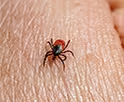Migraines: Causes, Symptoms & How to Prevent Them
Live Migraine-Free: Practical Tips for Pain Relief
Reading time: 1 minute, Discovery Chepe Id-567-SAL
Published on 12-27-2024

Photo: Adrian Swancar
Although there is no definitive cure, there are many strategies and treatments that can help significantly reduce the frequency, intensity, and duration of attacks. This article is for informational purposes only. It is very important that you consult your doctor.
What are migraines?
Migraines are a type of severe headache that can affect one or both sides of the head. They are often accompanied by other symptoms such as nausea, vomiting, and sensitivity to light and sound.
Causes of migraines
Although the exact cause of migraines is unknown, it is thought to involve a combination of genetic and environmental factors. Some of the most common triggers include:
a) Hormonal changes: These are more common in women and may be related to the menstrual cycle.
b) Stress: Emotional or physical stress can trigger a migraine.
c) Food: Certain foods such as chocolate, aged cheese, red wine, and processed foods can trigger migraines in some people.
d) Lack of sleep: Sleeping too little or too much can trigger a migraine attack.
e) Climate changes: Sudden changes in temperature or atmospheric pressure can be triggering factors.
f) Loud noises and bright lights: Intense sensory stimuli can trigger a migraine.

Migraines: Identify Triggers and Protect Yourself
Photo: Vinicius "amnx" Amano
Migraine Symptoms
Migraine symptoms can vary from person to person, but the most common ones include:
1-Throbbing headache: The pain is usually intense and located in one area of the head.
2-Nausea and vomiting: These symptoms often get worse with movement.
3-Sensitivity to light and sound: Bright light and loud noises can make the headache worse.
4-Aura: Some people experience an aura before a migraine, which may include blurred vision, flashes of light, or tingling in one part of the body.
How to prevent migraines
Although there is no definitive cure for migraines, there are several measures that can help prevent attacks or reduce their frequency and intensity:
1-Keep a migraine diary: Writing down personal triggers can help identify the factors that cause migraines.
2-Maintain a healthy lifestyle: Getting enough sleep, exercising regularly, reducing stress, and maintaining a balanced diet are essential.
3-Avoid triggers: Once triggers have been identified, it is important to avoid them as much as possible.
4-Preventive medication: In some cases, doctors may prescribe medications to prevent migraines.
If you suspect that your migraines are related to another medical condition:
Conditions such as hypertension, sinusitis, or Sleep disorders can trigger or worsen migraines, so it is very important that you consult your doctor.
See Also
Discovery Chepe
Most read...












